Dear Barbara,
Geography brought me to Berlin -or was it politics? What’s really left of a city when you don’t remember what brought you there? My memory fails me. It’s been twenty years since I first visited Berlin and eleven since I moved there. At the dawn of the 21st century, Berlin promised to be the city of our dreams. It promised to be the place where starving artists could thrive. I thought that from Dahlem to Pankow and from Spandau to Rudow, there was a territory where absurd dreams could come true. If only I knew.
Nowadays, I think that Berlin never fulfilled this promise. Instead, everything seems to be a lunatic’s promise that served as an escape from the darkness of this century. I shipwrecked in Berlin, trying to escape social determinism. I thought that by leaving behind Greece, I’d get rid of my Athenian identity and my social class. Moreover, I felt that I’d built a new, better version of myself by starting from scratch. What a fool. This wasn’t a dream; it was the middle class’s common misbelief.
Time goes by. You fall seven times, and you stand up eight. There’s no lesson to be learned, and Berlin can’t lift you. No city can lift you, actually, but I always hoped that Berlin could. I thought I was lost before I moved to Berlin, and I’d be able to reinvent myself. Today, I’m writing this letter to you to let you know that nothing went as planned. I didn’t escape, and I failed to get rid of anything.
And that’s probably Berlin’s most positive contribution to my life.
The real currency of Berlin
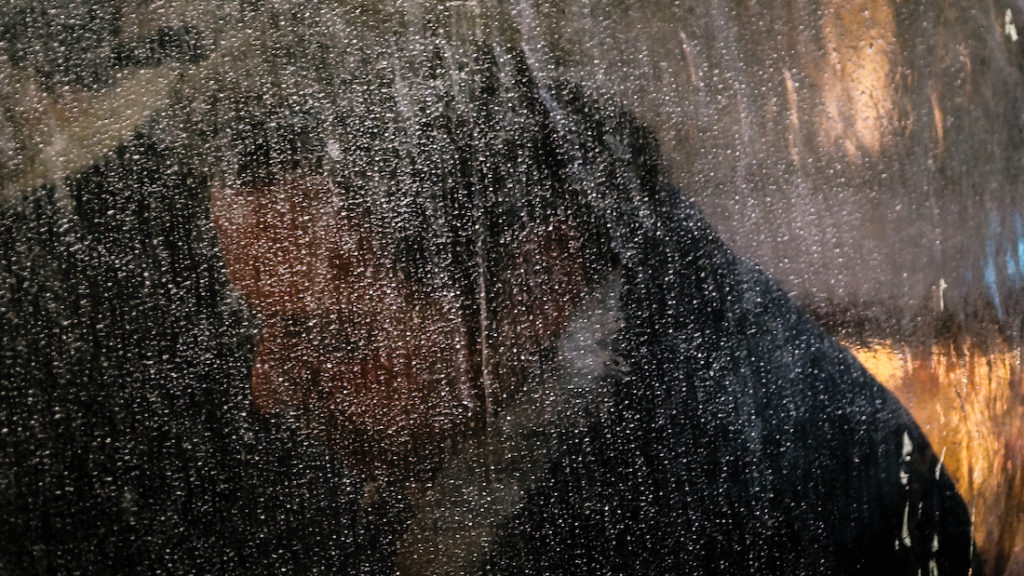
There’s no sea in Berlin, only numerous lakes. Whenever you see Berlin from an airplane window, you think this is not a capital but a countryside town. You expect to land in a forest and find a sleepy place beyond the tall trees. But soon, you realize that Berlin is not as dead as you thought. Sure, the noises are not as aggressive as in southern Europe. Traffic won’t dictate your stress levels; the agenda will.
You won’t easily find a Berliner without an agenda in the bag. The plans are solid, marked clearly in ruled notebooks. You can’t cancel things without reason. But schedules cause me stress and vertigo. From my first day in Berlin, I denied having one. I came here for the freedom, for the jeder macht seins mindset. How could I possibly trap myself in a labyrinth of future appointments that I had no clue if I’d still be in the mood to attend? How could I plan something for 7 pm next Tuesday?
So I had to escape from that, even though I already felt like an escapee. Long before a random pandemic taught us that there’s a thing called non-essential moving, I decided to embrace meaningless moving around the city. At night I’d leave my flat in Charlottenburg and lose myself in the city. I usually walked for hours until I reached the gathering points of agendaless people.
Berlin has a thing for lost souls, but it failed to teach them how to tolerate their devil inside. Berlin will not suppress the inner voice; it will just make it socially irrelevant. But I wanted to hear these voices exactly like the sunflowers are searching for the sun. So sooner rather than later, I found myself among the all-nighters at Bahnhof Zoo, where Currywurst becomes the real currency. It’s probably Berlin’s most democratic food -no, döner is a meal.
There’s an eternal exchange of sausages and coins all night long. The Bahnhof Zoo turns after midnight into a post-truth Agora where Bitte and Alter coexist unaffectedly. The man preparing the currywurst is always up for a bad joke, and the drunkards around are always keen on blaming the state. In between, the taxi drivers keep their engines shut and push the vehicles with their hands. It’s not out of respect for the midnight ecosystem around them; it’s just because the gasoline is too expensive.
Curry and sauce cover the train station. The slang betrays that somehow there’s no other way to be there this time of the night. “Zweimal mit” or “Einmal ohne” is what you hear. You spend two euros, but that’s not really the currywurst’s cost; it seems to be an entry fee. In a more conspirational manner, one could even refer to this fee as the bitcoin of the night. Two euros to be part of that theater.
Berlin and the street politicians
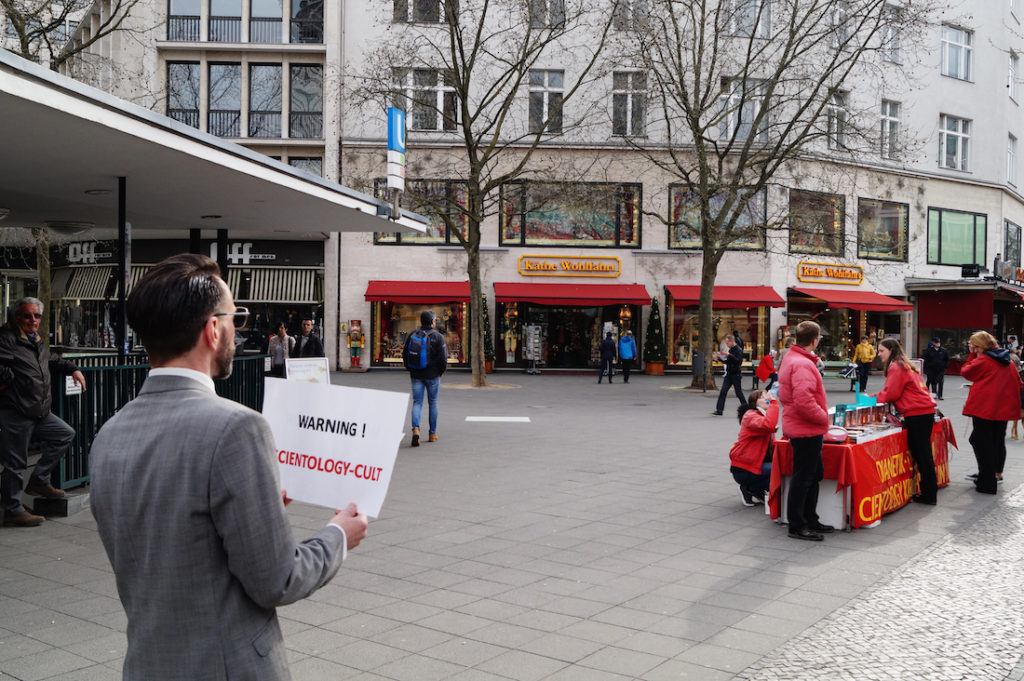
The currywurst ecosystem spreads all over the city during the day. The older the Berliners get, the less they appreciate a haircut. I enjoy observing men in their sixties or seventies standing in the corners. Their hands tied behind their backs, their lips ready to speak out a future plan about a political controversy.
You’ll find them in every corner, from Wilmersdorf to Weißensee, judging society and its silly norms. There’s usually a Späti, a Kneipe, or a grocery store behind them, and that’s probably the right background because, in the end, everything is about consumerism in their talks. But here, in these short incidents, it’s more about the listener and less about the talker.
The listener never agrees verbally; instead, he opens his palms and draws his lips in deep thought. All the failed kisses have transformed their lips into tight facial expressions of negativity. On the other hand, disagreement is expressed by producing a set of nasal voices, most likely deep m’s or n’s.
There are countless street politicians in Berlin. They transmit messages, and they receive messages. Once in a while, a beautiful woman walks by, and all of a sudden, politics matter less. The street politicians turn their heads around and follow her steps. The talk continues, and most of the time, they won’t comment on anything. That periscope movement of the head is an accurate comment itself.
Where goddesses sleep at night
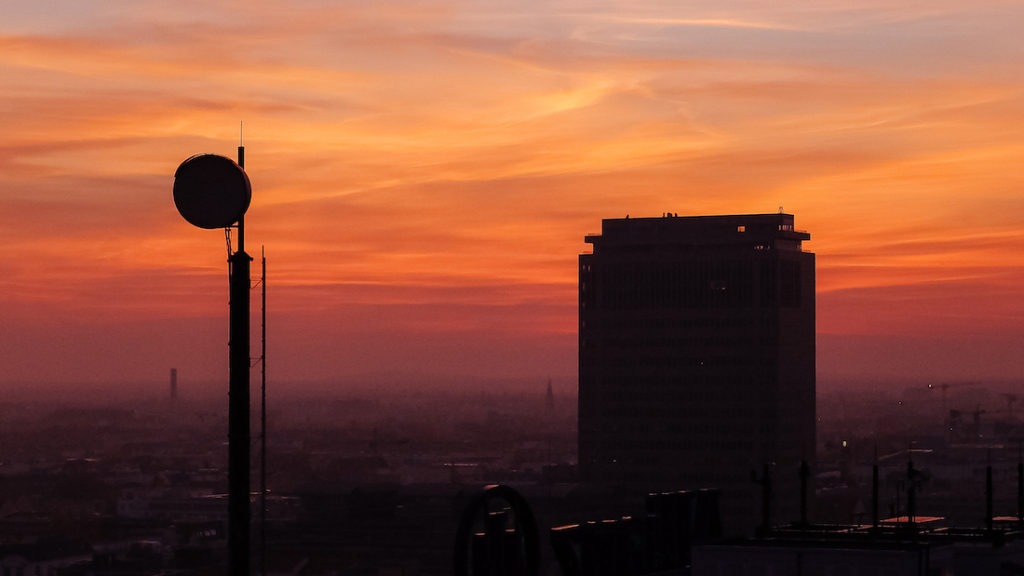
Berghain is steadily losing its glow, and Tachelles is long gone. Nowadays, there are significantly fewer artists in the city and more startups. The river Spree doesn’t seem as glorious as the Seine in Paris. Airbnb and gentrification slowly destroy the social coherence, and Berlin’s future is at stake. Berlin Tegel, my most beloved airport in Europe, has shut. The once famous creative city is losing parts of its identity, and that’s not just because of a pandemic. And yet, as Karl Scheffler famously said, Berlin is condemned forever to become and never to be.
I take long bike rides from Neukölln to Grunewald, and I try to count the changes. The TV-Tower is there, and the Bleibtreu Cafe is there as well. Berlin has just a few outdoor landmarks but plenty of meeting points. Sooner rather than later, these bike rides turn into existential itineraries, though. Geography doesn’t explore the outer world; in Berlin, it turns inwards and becomes a matter of the landscape within.
I can only wonder who I was before landing in Berlin and who I am now. Sometimes I cycle across the U2 metro line, the one I used the most in my first years in Berlin. I used to buy a monthly ticket, and I moved like a yo-yo all around the city. I remember I couldn’t understand any of the words the voice announced: Zug nach Ruhleben. It seemed like one long word: zunaruleben.
But now, I can hear very clearly every single word, almost every single breath. Somehow though, I miss that guy I once was. Back then, there was a whole Berlin world I could discover; nowadays, there are no surprises in every corner. But apart from that, back then, my inner voice could pronounce clearly the words describing my desires. Today, as I keep riding my bike across Berlin, I feel that my inner voice sounds confused. I can only hear one long word, which pretty much says: WhatAreYouStillDoingHere?
And then I cycle through the museums’ island. The female sculptures in these museums create an eerie need for lust and desire. So many marble goddesses are sleeping on this island, and yet not a single reply about life. What am I still doing here? Art didn’t save me. Am I officially lost in Berlin?
Berlin lost and found
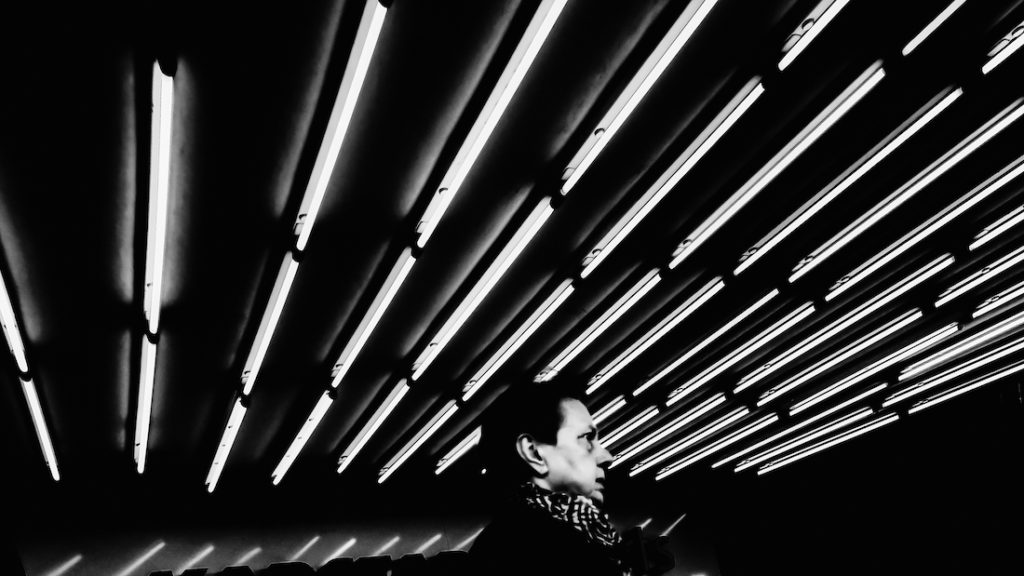
I used to read a lot the Ex-Berliner, then I started buying the Berliner Zeitung. But when learning new words in German lost its charm, I decided to keep myself away from the news and read more opinion articles. Throughout my years in Berlin, though, there was one thing I never stopped reading. No, it wasn’t literature. It was the occasional report of the lost and found of the BVG.
It somehow was fun. This report from the Lost and Found office of the Berlin Transport Company is never an official one. But it somehow finds its way every year to the local news. One thinks that people are careless and don’t pay attention to their belongings -and that’s probably true. However, apart from the occasional smartphones or wallets, there are loads of other things that remain forgotten on the seats of buses and trains.
Ever since I read the first lost and found report, I became obsessed with it. Sporadically, I’d search on the Berlin news to see if there’s a new article about things people forgot on public transport seats. I still try to uncover what triggers me so much in these lost objects. If it was just amusing, I think I would have already forgotten it. After asking myself extensively, I also decided that I didn’t see this as some creative curiosity or like one more never-ending Berlin art project.
Then, it made more sense to think that it was about the stories. This proved to be a better explanation. By reading that people forgot objects like cat beds, dentures, or wheelchairs, I could somehow “see” those people leaving the items behind in front of me. And I, of course, wondered: how can somebody forget a wheelchair? Or, how possible it was for somebody to remove the denture and forget it on the seat? Honestly, a forgotten cat bed in the Berlin U-Bahn made -somehow- more sense.
But every year, the game seems to elevate, and the new items people forget in public transport become even weirder. Last year somebody forgot a chainsaw. Was this a murderer that decided to remain sane or a gardener? And how about that forgotten bowling ball? Then I read about a drying rack. And then about an enormous television in its box.
But all of a sudden, everything made sense.
That middle-class fear
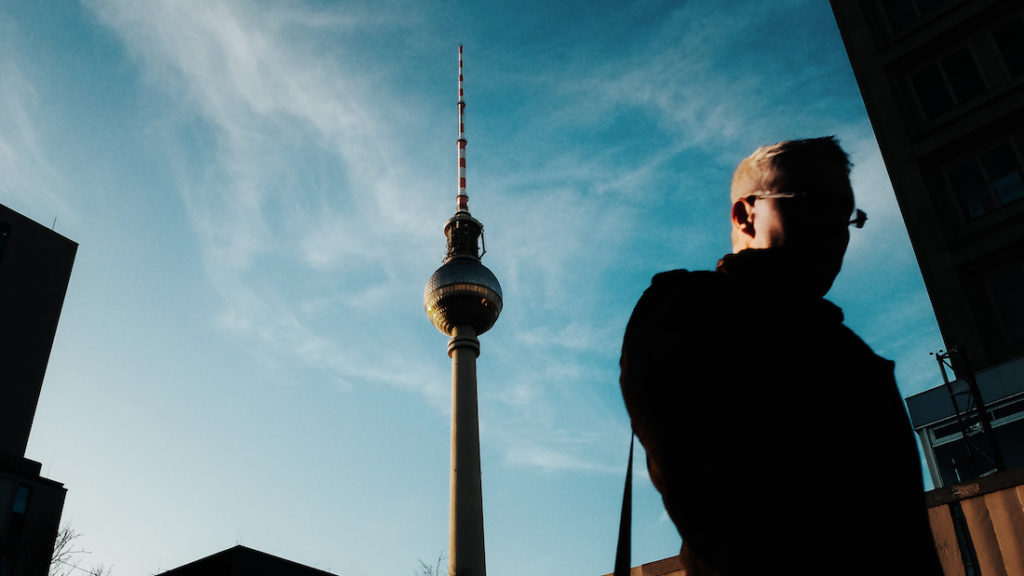
I realized that it wasn’t about the objects that people forgot in the U-Bahn or the S-Bahn. It was, once again, about the geography turning inwards. By reading the lost and found articles, I was not just craving stories. What I discovered was my distinct fear of being completely lost in Berlin. By reading (and often smirking) about these things, I felt better. Deep inside me, I thought that people forgetting something here and there is probably part of the city’s lost souls. That’s so terribly wrong, but that’s how I distorted it in my mind.
Not forgetting things in the metro meant that I still had a purpose in life and in Berlin. So far, I never forgot anything in my life, and this, oddly, made me think that I still have control of everything. So wrong: I probably don’t control anything, and I’m, exactly like the rest of us, alive by pure luck. Life has no real rules.
And that’s where the devil inside comes into the game. In my case, the devil inside is more of a listener. It’s not a loud voice, and it mainly reacts with nasal m’s and n’s when it agrees or disagrees. All these noises of disapproval confirm the inner battle about having a goal. And to be honest, I often think that I have no goal, and I just go by the flow in Berlin until the city washes me away.
While I’m slowly turning into a street politician (because that’s how you probably age in Berlin), I still read the lost and found articles while chewing currywurst around Bahnhof Zoo, always past midnight. Sometimes, I imagine that among the drug-dealing taking place around the train station, I read an article about somebody who forgot himself in the U-Bahn and became an article for the lost and found report. This will probably be the peak of this obsession because this person will be me.
Then, while I still imagine the man who forgot himself in the Berlin U-Bahn, I remember the hidden drug dealers around me. I wonder if somebody poured drugs in my beer, and that’s what makes me think of such odd things. But having drugs deliberately poured in your drink is a Greek middle-class fear I carried in Berlin. Sadly, I couldn’t escape nor my identity, neither my social class -and that’s probably why I’ll always feel happily lost in Berlin.
Love,
George
More about Berlin: 10 Berlin facts, The ultimate travel guide to Berlin, Berlin street photography, Berlinale guide
Pin it for later
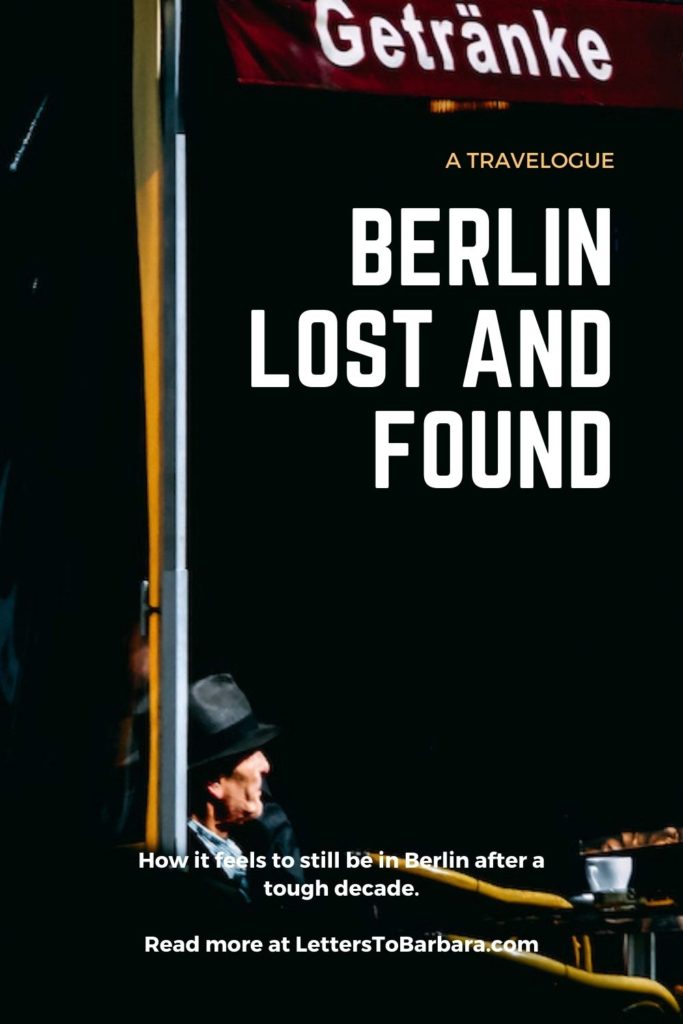
Did you enjoy reading Berlin lost and found? Share, pin, tweet, or leave a comment below.
Last Updated on September 25, 2021 by George Pavlopoulos
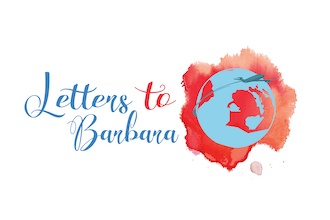

George, I thought you were heading in the direction of saying that you are leaving Berlin and moving to Athens or maybe Anafi, or some other Greek island like Hydra, which is known for being a magnet for artists. I think everyone is a little bit lost no matter where they are. Everyone is in search of their utopia, which is why travel is so addictive. It’s the best drug!
Hey John!
I think I’m not ready to leave Berlin yet. Anafi is always in my mind, but I think I couldn’t live there permanently -I need big city vibes, cinemas, pollution, you know, all that 😀 But it’s definitely my place to go every summer. Hydra: I haven’t been there for so long. It’s one of the places I want to return to, it’s one of the most beautiful Greek islands. Let’s hope that the lockdowns won’t last forever. By the way, how is the situation in Australia?
I can only agree: being in search of a personal utopia keeps us going. At the end of the day, I don’t mind if I’m lost in a foreign city as long as I still find it interesting. That’s why I still spend so much time in Berlin, even though it’s sometimes tiring. That’s probably why I still prefer to live in both cities -even Athens can be very tiring after a while. What I miss the most right now is to travel somewhere; on the other hand, I don’t miss at all being permanently somewhere. I guess I’ll stick to the part-time Athens, part-time Berlin schedule of the last eleven years…
Each state in Australia is like a separate country at the moment. When a state gets over 20 Covid cases, most other states ban entry to anyone coming from there. If you were in the state of Victoria, where the city of Melbourne is, then last year would have been a nightmare as they had a severe lockdown that went on for months.
All up at the moment, it seems as if Australia has less than 100 Covid cases. The problem is that if you travel to other states, they can lock the borders overnight (or without much notice), and then you’re trapped, which has happened to many people. Most of the tennis stars competing in the Australian Open are now in quarantine for 14 days because a few people on the flight tested positive.
I just came back from a cycling trip to the Clare Valley, which will be my next post. Working on it now. I still try and do a trip every now and then. You can travel, but there’s always a risk. You have to give shops and places you visit your contact details or use an app so they can trace you. If they find someone who has Covid and you were there at a similar time, then you have to do 2 weeks of isolation. All up though compared to other countries, Australia seems to be going pretty well.
Sounds tough, John. The situation is more or less the same in the European Union, too. There are big differences between countries, and sometimes there are significant differences between cities within the same country.
When Athens got in lockdown at the beginning of November, there was no lockdown in Berlin. Greece introduced even a curfew (it still has one) while a face-covering outdoors wasn’t even mandatory in Berlin. Nowadays, Greece tries to open the economy while Berlin discusses curfew and similar tough regulations.
The toughest thing for me is the quarantine. If I want to fly from Athens to Berlin, I need to be on a ten-day quarantine; if I want to fly from Berlin to Athens, I have to be seven days on quarantine. That said, just flying between Athens and Berlin (some sort of routine for me during the past decade) requests a total of 17 days of quarantine.
Looking forward to your cycling trip post. Cycling kept me sane in these horrible times.
Take care,
George
Hello George,
Reading this essay provided me a look into a man that appears to be emotionally hurt and detached from his own society. This is such a departure from your up beat and fun loving adventures that I actually felt unsettled by your pessimistic view of how a life has gotten to this point of despair. I know from reading other adventures this may have been a “one off” emotional departure. Please know this is in no way a criticism, in fact it has opened something inside of me to look at maybe a life less well lived. Thank you for this eye opener, and the means to explore my untapped potential.
As always i enjoy your adventures
Gary
Hey Gary,
Yes, indeed, most of these letters are more personal. While I always want to show people how they can travel, I keep this blog section for my thoughts, impressions, and strokes of darkness. A decade in a foreign country is quite a long time, and it offers you the opportunity to expose yourself to a broad palette of sentiments and thoughts. Berlin is a beautiful city, but there are days it can really slap you in the face. The more I stay here, the more I get distracted and rewarded simultaneously.
All cities, even those without an important past, have multiple layers. However, Berlin has an extra layer of history due to 20th-century events. From my side, add on top that I come from a country -Greece- that was almost destroyed by the financial crisis of the 10s, and you have a combination of darkness: the one that is omnipresent in Berlin, and the one I carry all these years due to the situation back home.
Thank you so much for your wonderful comment,
George